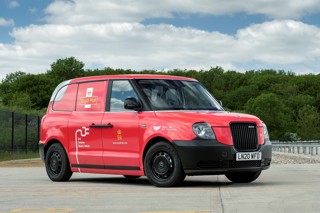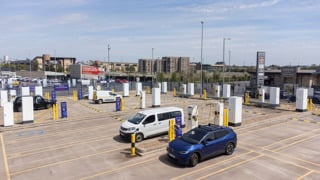Royal Mail has launched its first ever zero-emission delivery office fleet, in Bristol.
The Easton site has replaced its 23 diesel delivery and collection vans with fully electric equivalents.
Six electric charging posts have also been installed on the site as part of the transformation. The electricity for powering the office and for charging the vehicles is from 100% renewable sources.
Simon Thompson, Royal Mail CEO, said: “It’s clear to me that customers increasingly want less environmentally impacting deliveries. And as a Company, we believe it’s the right thing to do. We are delighted to transform Bristol East Central into the very first Royal Mail ‘all-electric’ Delivery Office. This is a really positive step and will help us assess the impact of these changes on both our customers and our people when compared conventional delivery offices.”
Bristol was selected for the EV switch due to the City’s plans for a Clean Air Zone (CAZ), which will require certain vehicles to pay a daily charge to enter its centre.
At present, other Royal Mail delivery offices across the UK are being considered for similar fleet makeovers in coming months – particularly those in places with existing CAZs, or that have plans to introduce them.
The fully electric vans have a significantly (up to 60%) larger load space than the vehicles they have replaced, giving additional capacity to deal with growing parcel volumes. With lower maintenance requirements, the electric fleet promises more on-road time and higher levels of reliability too.
The 23 new vans can travel up to 125 miles in between charges, depending on weather and load size. As part of Royal Mail’s recent expansion of telemetry technology across its fleet, the vans will also have telemetry capabilities installed, aimed at encouraging more efficient driving techniques.
Mayor of Bristol Marvin Rees added: “It’s fantastic news that Royal Mail has chosen Bristol for its first ever all-electric Delivery Office. Their 23 electric vehicles will join Bristol’s 99 bio-gas buses already on our streets in reducing emissions and improving air quality. We want to support people and businesses in transitioning our fleet to cleaner and more efficient vehicles. The investment in these vehicles and their network supports the important work of distribution across Bristol, as well as contributing to our economy as we recover from the Covid pandemic.’’




















Login to comment
Comments
No comments have been made yet.